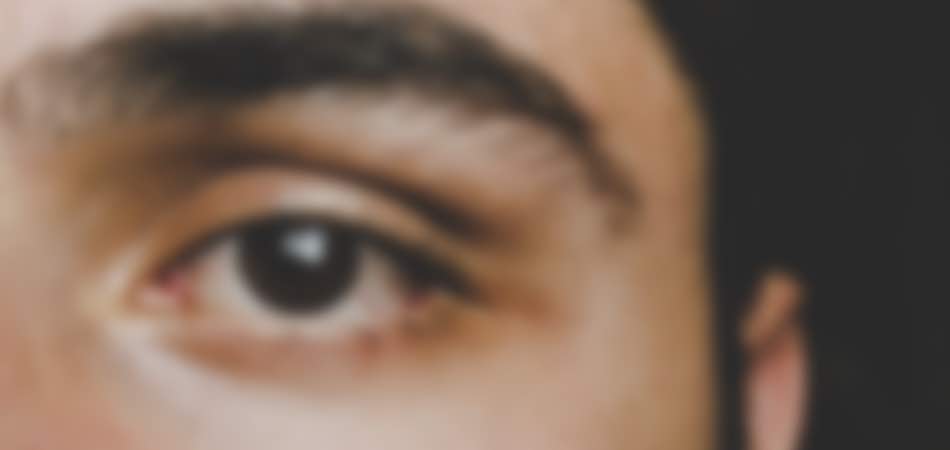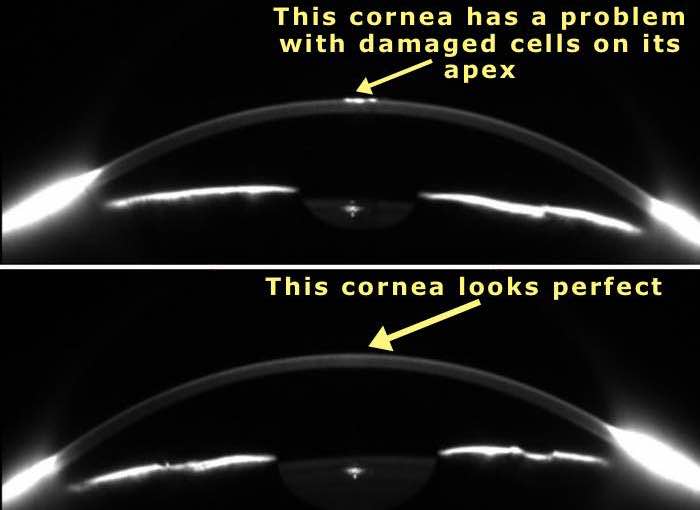This has certainly happened to you before: you wake up in the morning and realize that your vision is suddenly blurred. What should you do then? Contact your eye doctor for a prompt appointment when the condition stays the same for longer than 15 minutes or gets worse. It is not recommended to ignore the worsened visual impression.
As you can see in the list below there are many reasons that could lead to sudden vision loss or blurry vision. Some of them are very important to treat by your doctor right away while others are as simple as forgetting to put out the contact lenses the night before. With a second contact lens on top visual acuity then worsens.
As a layman, by looking at your own eye you can not tell what is the cause for blurry vision. Your opthalmologist will run certain tests to find out what part of the eye causes problems. In some cases, a certain dye is used and in others special devices to scan the back of the eyes.
Possible Causes of Sudden Blurred Vision
- Forget to put out contact lenses
- Temporary fluctuations due to diabetes
- Temporary low blood pressure
- Pinched eye
- Retinal detachment
- Stroke
- Wet macular degeneration
- Angle closure glaucoma
- Corneal abrasion
- Conjunctivitis
- Inflammation of the cornea (keratitis)
The first thing you should do in such a situation is to stay calm. Calmness is the best companion in this case because there can be quite easily explainable and harmless causes of the worsened vision overnight.
For example, if you get out of bed too quickly, you may experience brief blurred vision and perhaps even mild nausea. These symptoms do not then have to be causes of a serious illness but are rather a natural reaction of the body to unexpected situations. In technical language, this is called orthostatic hypotension.

The affected person may even lose balance for a brief moment and vision is blurred until the blood pressure regulates itself again within a short time. In such cases, the blurry vision disappears and you will see clearly again within minutes.
Sometimes blurred vision in the morning can also be due to an awkward sleeping position in which one has pinched the eye. This then manifests itself in slightly blurred vision, possibly on one side, which however returns to normal on its own after a change of position within a few minutes.
Another conceivable cause is an inadequately corrected visual defect, for example, due to nearsightedness or farsightedness. This does not occur overnight, but it does happen that people who suffer from a very slight visual defect find it disturbing from one moment to the next. Especially in new environments, many people suddenly notice their blurred vision – in one eye or both eyes – for the first time. A simple eye examination can bring clarity here.
Keratitis
In corneal inflammation (keratitis), the transparent part of the outer eye skin becomes inflamed, causing severe pain and blurry vision. The triggers are often bacteria, viruses, or parasites. However, keratitis can also have non-infectious causes such as UV radiation or foreign bodies that have entered the eye.
Diabetes
The rising blood glucose level increases the osmotic pressure in the eye, which in turn leads to water retention in the eye lens. The stored water changes the shape of the lens and thus also its refractive index – the patient suddenly sees blurry.
Retinal Detachment
Retinal detachment is a rare case in which the patient suddenly perceives blurriness or even dark spots. This happens due to the detachment of the retina in the back of the eye. In this case, affected persons perceive flashes of light and complain of various visual disturbances. If left untreated, retinal detachment can lead to blindness, which is why it is an ophthalmological emergency.
Angle Closure Glaucoma
Typical symptoms are: Pain, red eye, pupil dilated on one side, reduced visual acuity, when looking at light sources colored rings around the light source are often perceived. With these symptoms, an ophthalmologist must be consulted immediately.
Wet Macular Degeneration
Several factors play a role, among others genetic factors, environmental influences, and smoking favor the development of macular degeneration. One role is played by deposits in the tissue layer below the retina of the eye, which increases with age and disrupts the metabolism in certain retinal layers.
Corneal Abrasion
Corneal abrasion can happen very quickly. A fingernail that touches the cornea or another foreign body to cause a scratch. This of cause can cause blurry vision within seconds. Depending on how deep the corneal abrasion is the healing process can last from one to two days up to months until your visual acuity gets restored. In severe cases, vision stays blurry permanently.
As you can see in the picture below the cornea has different layers. The first layers heal very quickly and can be restored perfectly. When the scratch is deeper the cells will not heal as fast and the formation of scar tissue is likely which impairs vision.

Medical Background for Blurry Vision
The Medical Explanation of Sudden Blurred Vision Is Often Related to the Following Three Factors:
- Changes in the retina, the sensitive area at the back of the eye. The retina converts light into nerve impulses.
- Problems of the nerves that transmit the information and visual impulses from the eye to the brain.
- Opacification of the ocular apparatus, specifically in the cellular tissues of the eye. Normally, these tissues are transparent. When it is not like in case of an heavy infection the vision gets blurry because the light rays can not pass through the cornea correctly.
Sudden Blurred Vision: When Should You See a Doctor?
Unfortunately, not all cases of sudden blurred vision have a cause that does not require treatment. If the blurred vision persists and does not return to normal on its own within a few minutes, we should definitely take these symptoms seriously.
In this case, you should consult an ophthalmologist as soon as possible. Especially if there are spots or black haze in the field of vision, we should inform a doctor right away, because it could be a stroke.
Other reasons for this change in the visual apparatus may be damage or inflammation of the visual apparatus, infection of the cornea or iris, retinal detachment, poor contact lens hygiene, an overdose of UV radiation, or even a foreign body in the eye. All of these possible causes require ophthalmologic diagnosis and treatment, if necessary.
